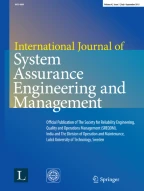Abstract
Peer assessment is an important part to evaluate college students’ learning effect and ability in blended learning. Peer assessment guided by teachers encourages students to engage in classroom and leads to the learner-centered classroom. Peer assessment studies in higher education mainly focus on the students’ attitude to peer assessment and the effectiveness of peer assessment. However, little exploration has been made on how to deal with and prevent the bad results of peer assessment, which has an important impact on improving the quality of peer assessment. By Game Principles Course, this research puts forward the idea of building a peer assessment loop to improve the quality of peer assessment and prevent the bad results of peer assessment.
Similar content being viewed by others
References
Carvalho A (2013) Students’ perceptions of fairness in peer assessment: evidence from a problem-based learning course. Teach High Educ 18(5):491–505
Chen T (2017) Implementing students' mutual evaluation in Chinese teaching. Basic Educ Res (18):18–18
Chen D, Wang J, Wei Y, Li X (2017) Application of student assessment in the opening of nursing laboratory. High Med Educ China 12:62–63
DeVillis RF (1991) Scale development: theory and applications. Sage, Newbury Park, CA
Gong X (2016) The practice of student assessment in the rural junior high school mathematics classroom. Ludong University
He H (2016) Student feedback mechanism based on teacher feedback in English writing. Engl Plaza 04:88–89
Luo H, Zuo M, Anthony R (2017) An empirical study on the effect of large-scale open online learning on student interaction assessment. Open Educ Res 23(01):75–83
Reinholz D (2016) The assessment cycle: a model for learning through peer assessment. Assess Eval High Educ 41(2):301–315
Rotsaert T, Panadero E, Estrada E, Schellens T (2017) How do students perceive the educational value of peer assessment in relation to its social nature? A survey study in Flanders. Stud Educ Eval 53:29–40
Wang F (2017) An empirical study on the effect of student interaction assessment. J High Educ Res 40(04):86–90
Yuan P (2017) Research on the teaching mode of student assessment system in computer experimental classroom. Technol Inf 15(35):119–120
Zhou B (2018) A review of peer assessment in english learning in China [J]. English Teachers 18(17):6–9
Acknowledgements
This work is supported in part by Higher Education Reform and Research Projects in Hebei Province (No. 2016GJJG117), the project of Hebei Postgraduate Demonstration Course (No. KCJSX2018068), and the projects of Hebei Social Science Fund (Nos. HB17JY069, HB19JY017).
Author information
Authors and Affiliations
Corresponding authors
Additional information
Publisher's Note
Springer Nature remains neutral with regard to jurisdictional claims in published maps and institutional affiliations.
Rights and permissions
About this article
Cite this article
Qiao, L., Wang, Z., Bao, S. et al. Analysis and reflection on peer assessment results based on short play of game theory. Int J Syst Assur Eng Manag 11, 780–784 (2020). https://doi.org/10.1007/s13198-019-00837-2
Received:
Revised:
Published:
Issue Date:
DOI: https://doi.org/10.1007/s13198-019-00837-2
